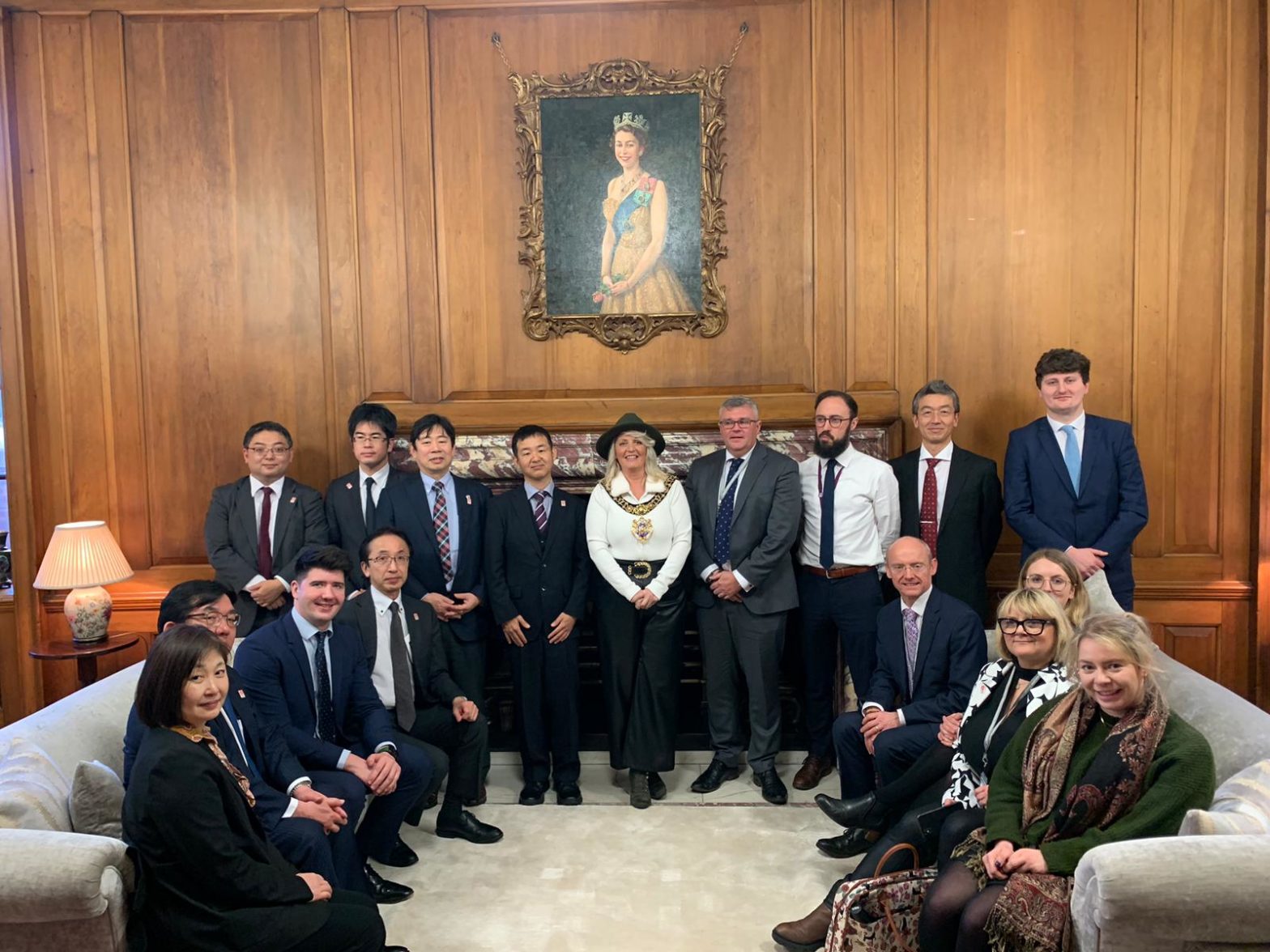Within the EU-funded IURC Asia and Australasia programme, a delegation from Osaka City is currently visiting Greater Manchester as a follow-up of a study visit undertaken by Manchester authorities from 2-8 October 2022. The Greater Manchester Combined Authority (GMCA) is the only UK local authority participating in the IURC project (GMCA had participated in the IUC Project). The pair Osaka-Manchester has a deep interest in learning from each other’s efforts to combat climate change and to achieve carbon neutrality. A key feature of this cooperation is that it involves not only city hall staff but also private companies that are developing relevant technologies and the Osaka Metropolitan University. The current Osaka delegation is headed up by Mr. Atsushi Okamoto, Director for Environmental Policy from the Environment Bureau of the Osaka City Government. From the IURC project side, the delegation is supported onsite by Mrs. Yatsuka Kataoka, Programme Director of the City Taskforce at the Institute for Global Environmental Strategies (IGES).
Day 1 – Monday 16 January 2023
The day after arriving in Manchester, the delegation was welcomed by Mrs. Jo Ahmed, Honorary Consul for Japan in Manchester and Mrs. Maria Gonzalez, Principal International Relations for the GMCA. The delegation then went to the Lord Mayor’s Chambers to meet the Lord Mayor of the City of Manchester, Councilor Donna Lunsford. Afterwards, they proceeded to the Chamber of Commerce (GMCC) for a meeting on Business Engagement with Mr. Clive Memmott, CEO GMCC and Ms. Susana Cordoba, Head of International GMCC. Further meetings were held discussing hydrogen opportunities facilitated by Mr. Amer Gaffar, Manchester Fuel Cell and Innovation Centre of Manchester Metropolitan University, with the Carlton Powers and Manchester Airport Group.
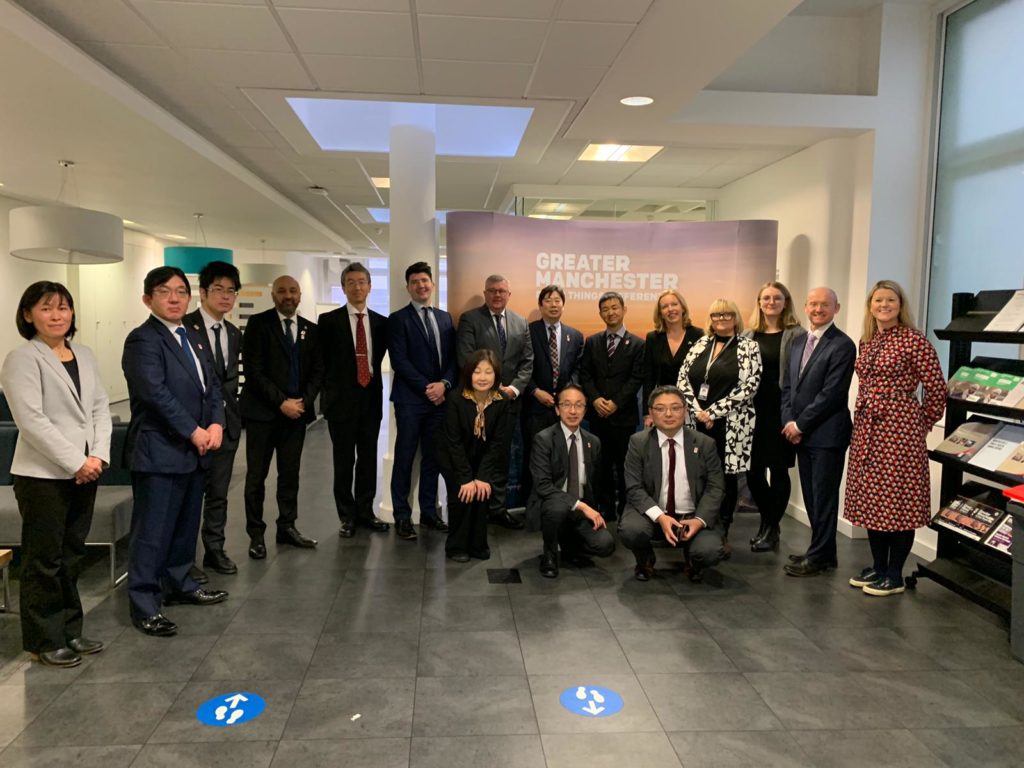
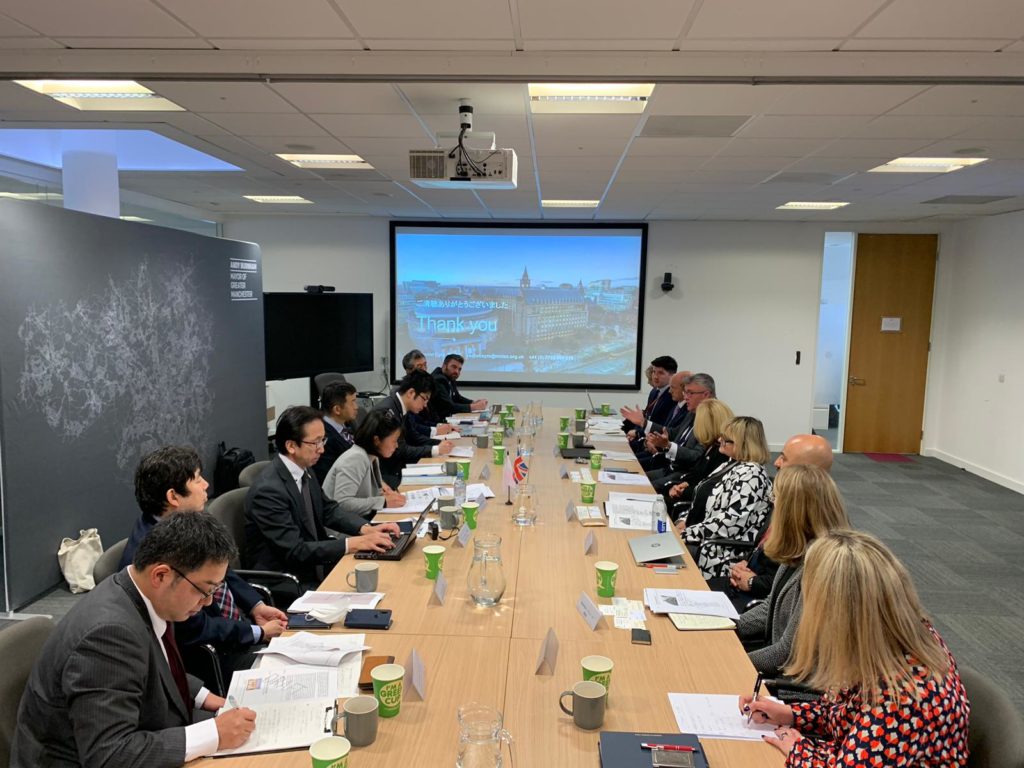
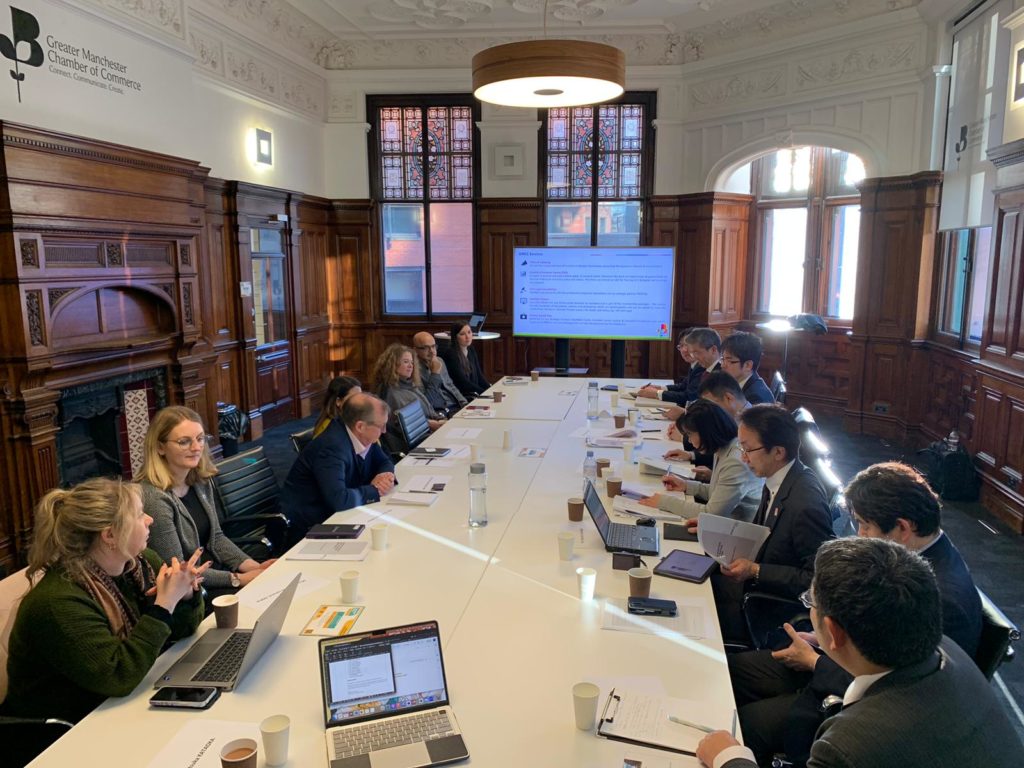
Day 2 – Tuesday 17 January 2023
The delegation traveled to Salford University and met with Prof. Will Swan, Director of Energy House Laboratories. Energy House is a unique research and testing group of laboratories. Energy House 1.0, opened in 2012 comprises an early 20th century two-bedroom terraced house within an environmental chamber allowing an accurate and rapid assessment of energy-efficient retrofit technologies. Throughout the chamber and the house there are over 200 monitoring points with real-time data collection of parameters such as temperature, humidity, heat flux, electricity and gas consumption. The facility underpins a range of research topics including: Building physics/performance, Sensors/data collection, Data analysis and visualisation, Human factors, Smart meters and connected homes.
The build and commissioning of Energy House 2.0 was completed in February 2022 and is the largest research facility of its type. Within Energy House 2.0 there are two environmental chambers each able to accommodate two detached houses and under controlled conditions, recreate a wide variety of weather conditions with temperatures ranging between -20˚C to +40˚C and simulated wind, rain, snow and solar radiation. This unique facility will play a key role in accelerating the progress towards low carbon and net zero housing design and builds upon the success of the Energy House 1.0.
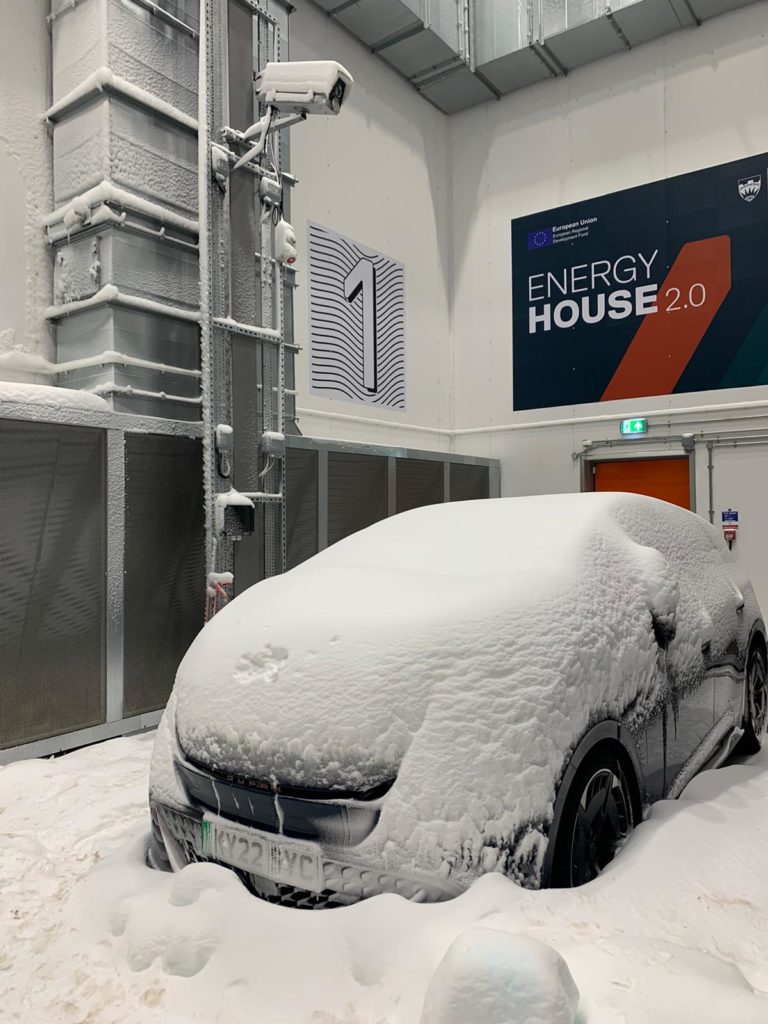
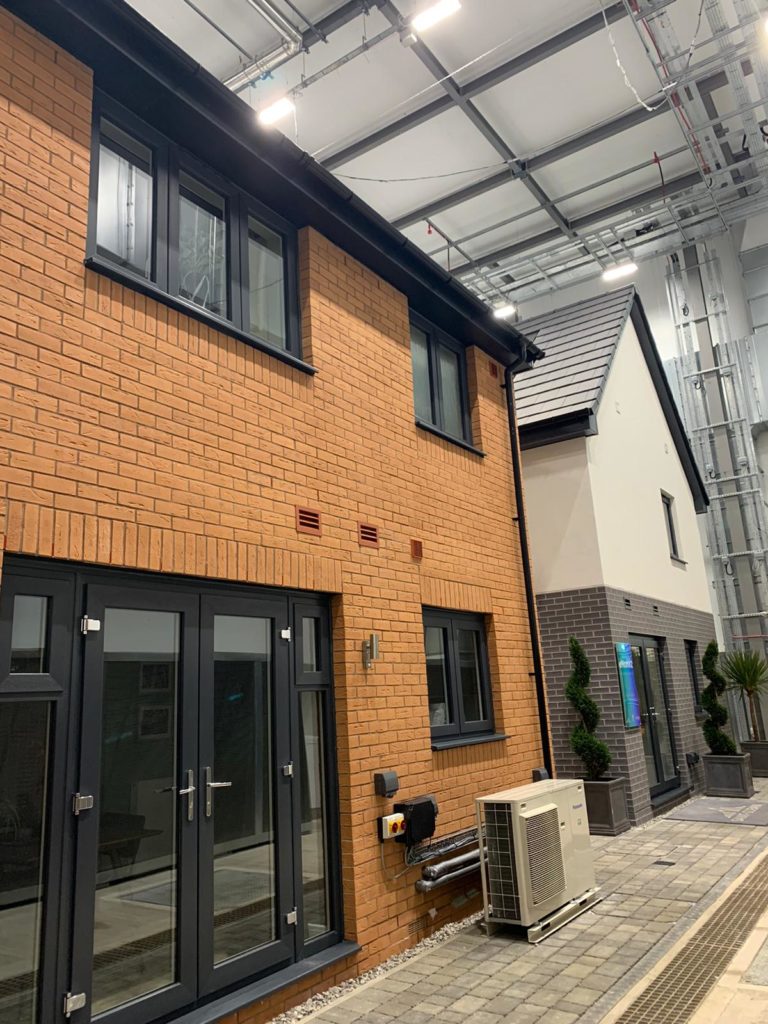
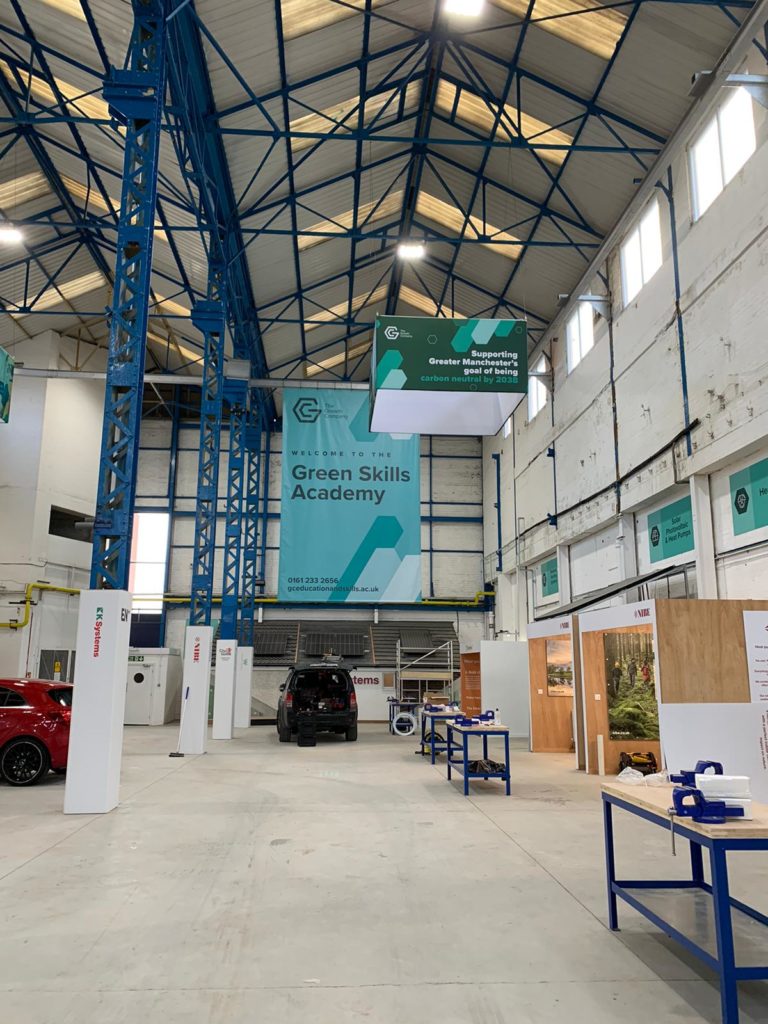
The delegation then traveled to MediaCityUK developed on the bank of Manchester Ship Canal and more than 20 energy-saving projects were implemented. The delegation also had a meeting with Mrs. Jo Holden, Sustainability & ESG Director at Peel L&P, the developer of buildings in MdeiaCityUK.
The final visit of Day 2 was the Trafford Green Skills Campus. Mr. Roosevelt Alexander, Sector Director of Growth Company discussed the launch of the Green Skill Academy as part of a pan-northern effort to lead the UK’s transition to Net Zero. The Green Skills Academy, to be launched 2 days after the visit, is expected to play a critical role in Greater Manchester’s ambitions to reach Net Zero carbon as early as 2038 and UKwide by 2050. The Academy will house the latest green technology equipment in order for businesses and individuals to gain the knowledge and skills which will place Greater Manchester at the forefront of emerging technologies.
Day 3 – Wednesday 18 January 2023
The delegation then headed to the Museum of Science and Industry and given a tour by its Director, Ms. Sally MacDonald and Ms. Rachel Knight, Head of Exhibitions. The purpose of the museum visit was to learn more about the decarbonisation projects for the estate and also to learn more about existing new and planned exhibitions that could portray the message of Greater Manchester’s net zero ambitions. The Science and Industry Museum was awarded £4.3 million by the Government’s Public Sector Decarbonisation Scheme to transform the museum’s environmental sustainability and place zero-carbon technology at the heart of the visitor experience.
This natural resource will now once again be utilised by the installation of a new water source heat pump network including bore holes along with the latest green technologies. This is a visionary, sector-leading project where the original and modern combine for a sustainable museum of the future. The funding will enable an annual reduction in CO2 emissions for the museum of 515 tonnes (equivalent to the average C02 emissions of over 30 UK homes per year) on completion of the works, improving every year as the electricity grid decarbonises through increased zero-carbon generation. It will support the Science Museum Group’s goal to reach a net zero target of 2033 (17 years ahead of the national target) and Greater Manchester’s goal to become carbon neutral by 2038 (12 years ahead of the national target.
Afterwards, the delegation met with Greater Manchester (GM) Mayor Andy Burnham. Referring the similarities of two cities in industrial development, he expressed high expectation of this collaboration to address the global challenges of climate change and willingness to collaborate for the success of the Osaka-Kansai Expo 2025. The delegation then visited the Manchester Fuel Cell and Innovation Centre of the Manchester Metropolitan University, the Henry Royce Centre, and the University of Manchester and exchange opportunity to collaborate research contributing carbon neutral society.
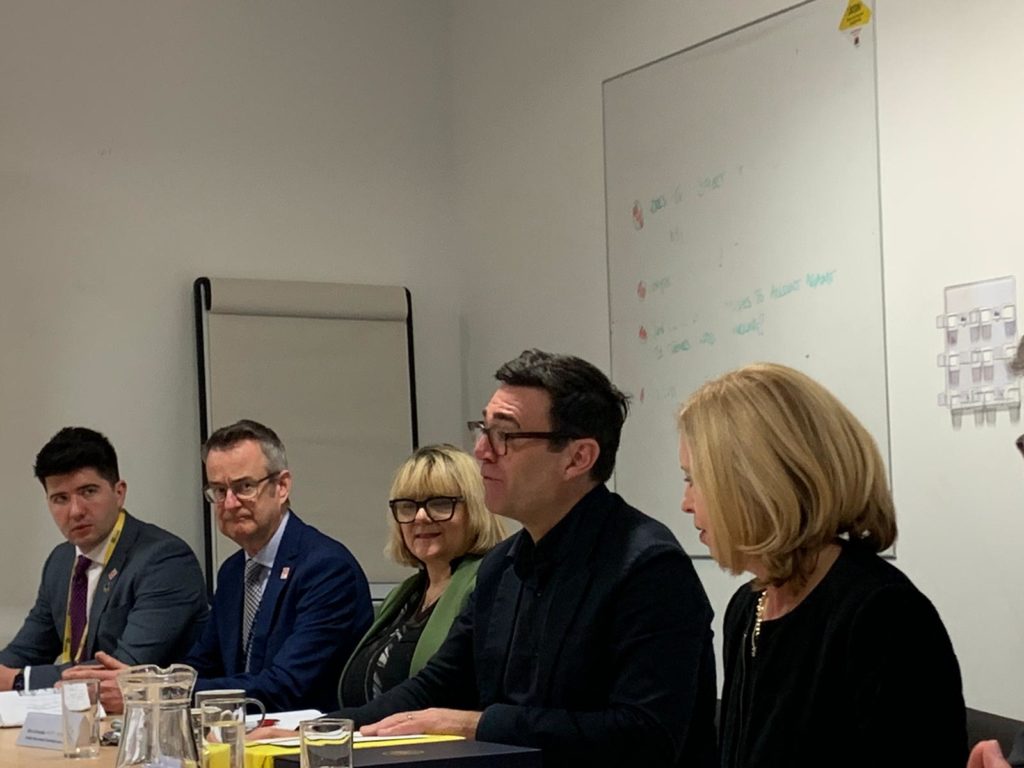
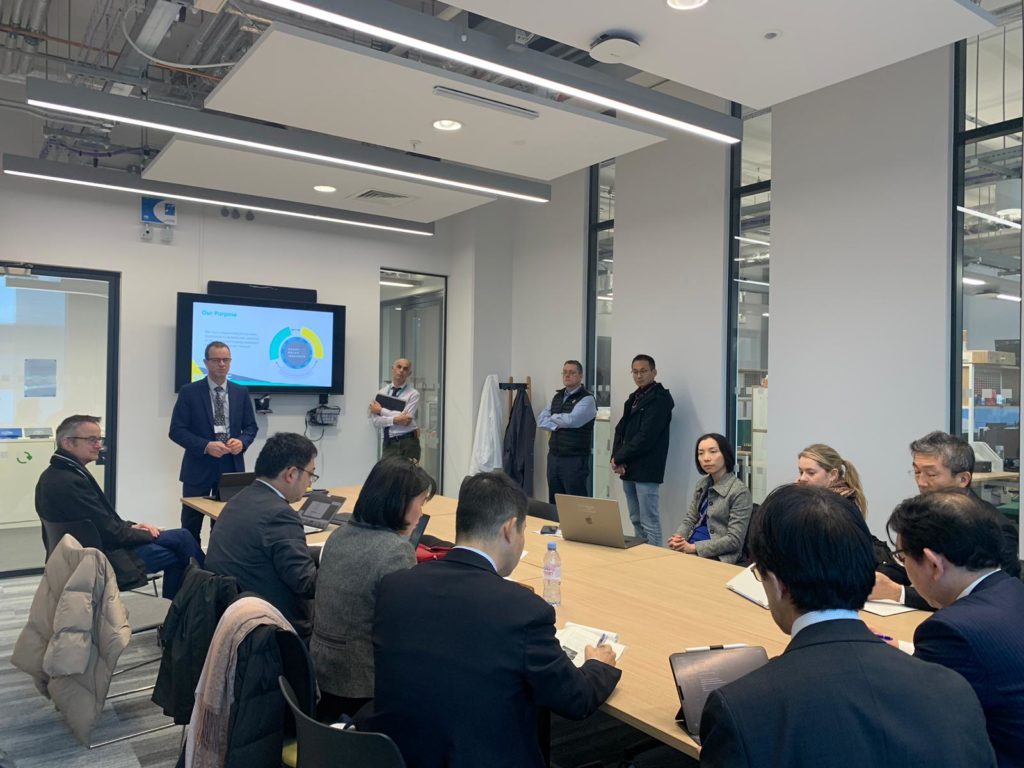
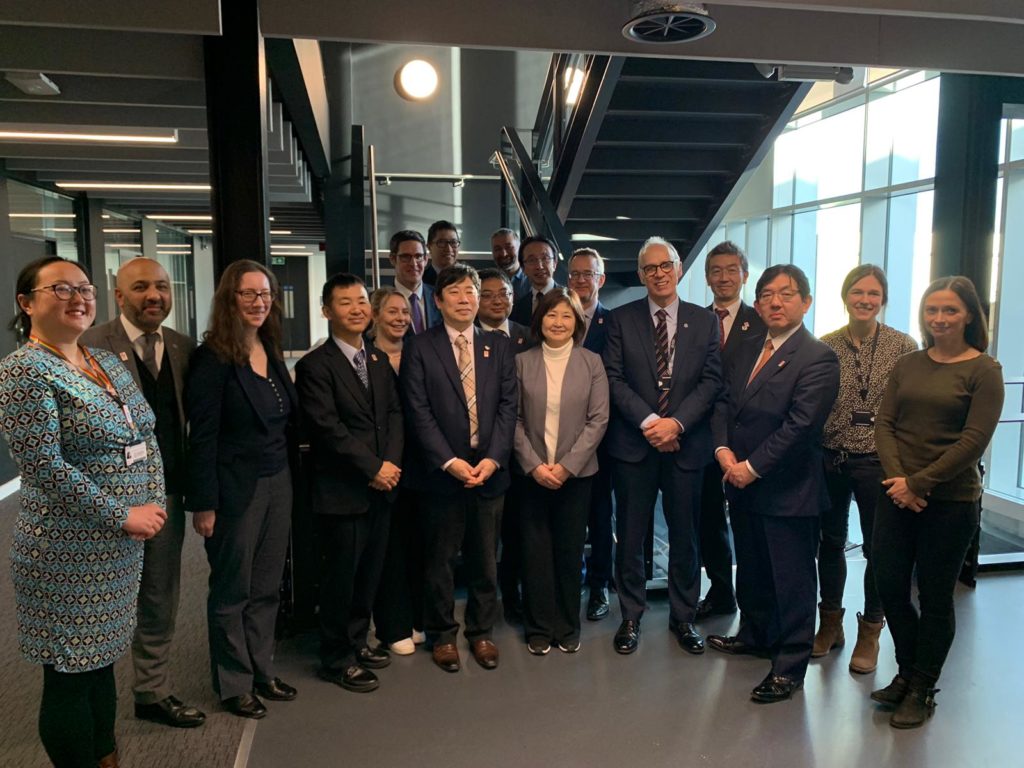
Day 4 – Thursday 19 January 2023
The last day of Osaka’s mission to Manchester was devoted to a debriefing meeting with GMCA, MIDAS (Greater Manchester’s investment promotion agency), Manchester Metropolitan University, and the private sector. During this meeting, representatives from both sides further developed the Urban Cooperation Action Plan (UCAP) and – based on the study visit – defined the next steps including the development of a multi-layer collaboration of two cities in which not only local authorities but also business and academia will collaborate with each other. Since hydrogen energy is one of the main cooperation areas, synergies will be sought with other EU-Japan pairs working in this area (Essen-Grenoble-Toyota-Koriyama).
